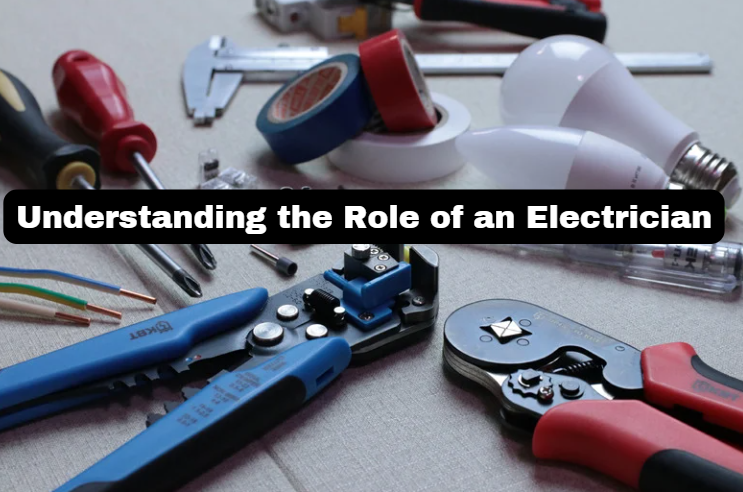Electricians play a crucial role in our society, providing the expertise and skills needed to install, maintain, and repair electrical systems.
With the increasing reliance on technology and the growing demand for sustainable energy solutions, the importance of electricians has never been greater. As a result, the field of electrical work offers a wide range of career opportunities and the potential for professional growth.
In this guide, we will take you through a step-by-step journey on how to become an electrician. We’ll explore the necessary research and self-assessment to determine if this career path is right for you.
Short Summary
-
Becoming an electrician offers job security, competitive wages, and opportunities for professional growth.
-
Steps to becoming an electrician include earning a high school diploma, attending trade or vocational-technical school, applying for an apprenticeship, completing the apprenticeship, and obtaining the necessary licenses or certifications.
-
Job search strategies for electricians include networking, utilizing online job boards, researching electrical contractors, and exploring apprenticeship programs.
Understanding the Role of an Electrician

Electricians play a vital role in ensuring the safe and efficient functioning of electrical systems. They are responsible for the installation, maintenance, repair, and troubleshooting of electrical equipment and wiring in various settings. Here are the key responsibilities and tasks typically performed by electricians:
-
Installation: Electricians are skilled in installing electrical systems, including wiring, outlets, switches, circuit breakers, and lighting fixtures. They follow electrical codes and blueprints to ensure proper placement and connections.
-
Maintenance and Repair: Electricians install and maintain electrical wiring, read blueprints and wiring diagrams, inspect electrical systems, and troubleshoot electrical problems. They diagnose and repair faulty equipment, troubleshoot electrical problems, and replace or upgrade components when necessary.
-
Electrical Testing: Electricians perform electrical testing and measurements to ensure the safety and efficiency of electrical systems. They use specialized tools to assess voltage, current, and resistance, and make adjustments as needed.
-
Safety and Code Compliance: Electrical workers adhere to safety protocols and electrical codes to minimize the risk of electrical hazards. They ensure that installations meet safety standards and regulations, preventing potential accidents and ensuring the protection of individuals and property.
-
Technical Expertise: Electricians possess a deep understanding of electrical principles, circuits, and systems. They interpret electrical diagrams and schematics and have expertise in working with different types of electrical equipment and technologies.
Why Choose to Become an Electrician
Becoming an electrician offers numerous benefits and opportunities that make it an appealing career choice.
Here are some compelling reasons to consider becoming an electrician.
-
High Demand: The demand for skilled electricians continues to grow steadily, driven by the need for electrical installations, maintenance, and upgrades in both residential and commercial settings. This demand ensures a steady flow of job opportunities and long-term career prospects.
-
Job Security: Electricians enjoy a level of job security due to the ongoing demand for their services. Electricity is an essential utility, and skilled electricians are needed to ensure its reliable and safe use.
-
Competitive Salary: Electricians often receive competitive compensation, especially as they gain experience and expertise. Additionally, overtime pay and benefits packages can further enhance earning potential.
-
Career Advancement: The electrical industry offers various opportunities for career advancement. Electricians can progress from entry-level positions to higher-level roles such as electrical contractors, project managers, or electrical engineers. Additionally, pursuing additional certifications and specializations can open doors to more specialized and lucrative roles.
-
Entrepreneurial Opportunities: Electricians have the option to start their own businesses and work independently as an electrical contractor. This allows for greater flexibility, autonomy, and the potential to increase earnings. But you will need to get an electrical contractor license to be able to start your company.
-
Skills in High Demand: The skills and knowledge gained as an electrician are transferable and in demand across industries. This versatility provides opportunities to work in various sectors, such as construction, renewable energy, telecommunications, or automation.
The Different Types Of Electrician

Electricians can specialize in various areas to meet the diverse needs of different sectors. Here’s an overview of the different types of electricians:
Residential Electrician
-
Residential electricians focus on electrical systems in homes, apartments, and other residential settings.
-
They install, maintain, and repair electrical wiring, outlets, lighting fixtures, and appliances in residential properties.
-
Residential electricians often work closely with homeowners, contractors, or construction teams to ensure electrical systems meet safety standards and local codes.
Commercial Electrician
-
Commercial electricians specialize in electrical systems for commercial buildings, such as offices, retail stores, restaurants, and educational institutions.
-
They handle larger-scale projects and installations, including wiring, lighting, electrical panels, and data cabling for commercial spaces.
-
Commercial electricians may collaborate with architects, engineers, and business owners to design and implement electrical systems that meet specific business requirements.
Industrial Electrician
-
Industrial electricians work in industrial settings, such as factories, manufacturing plants, power plants, and warehouses.
-
They deal with complex electrical systems, machinery, and equipment used in industrial operations.
-
Industrial electricians install, maintain, and repair electrical components, motors, control systems, and industrial automation systems.
-
They may also troubleshoot and diagnose electrical faults using specialized tools and equipment.
Maintenance Electrician
-
Maintenance electricians are responsible for the ongoing maintenance and repair of electrical systems in various settings.
-
They perform routine inspections, identify potential issues, and carry out necessary repairs to ensure the continuous operation of electrical systems.
-
Maintenance electricians may work in residential, commercial, or industrial environments, depending on the specific requirements of their role.
Construction Electrician
-
Construction electricians are involved in new construction or major renovation projects.
-
They work closely with construction teams, architects, and contractors to install electrical systems during the construction phase.
-
Construction electricians read blueprints, install wiring, outlets, lighting, and connect electrical components to ensure safe and functional electrical systems in buildings.
Master and Journeyman Electrician
-
A Journeyman electricians are experienced professionals who have completed their apprenticeship and possess the necessary skills and knowledge in electrical work.
-
To qualify for a master electrician license, you must obtain additional experience. Master electricians have achieved the highest level of certification and experience in their field. They may oversee projects, supervise other electricians, and have the authority to design and plan electrical systems. Mast
How to Become an Electrician? 5 Easy-to-Follow Steps

Becoming an electrician is an exciting career choice that offers job security, competitive wages, and opportunities for professional growth.
If you’re interested in pursuing this path, follow these five easy-to-follow steps to kickstart your journey towards becoming an electrician.
Step 1: Earn a high school diploma or the equivalent
Before diving into electrical training, it’s essential to have a high school diploma or a General Education Development (GED) certificate. A solid foundation in subjects like math, physics, and electronics can provide a helpful starting point for your electrical education.
Step 2: Consider attending a trade or vocational-technical school
While not always mandatory, attending a trade or vocational-technical school can provide specialized training in electrical systems. These programs offer classroom instruction and hands-on practice, equipping you with the foundational knowledge and skills required in the field.
Step 3: Apply for an apprenticeship
An apprenticeship is a valuable step towards becoming an electrician. It combines on-the-job training with classroom instruction, allowing you to gain practical experience under the guidance of experienced professionals. Research local apprenticeship programs and apply to ones that align with your career goals.
Step 4: Complete your apprenticeship
During your apprenticeship, you’ll work alongside licensed electricians, honing your skills and expanding your knowledge. The duration of an apprenticeship can vary, typically ranging from three to five years. Embrace this learning opportunity, ask questions, and actively participate in various electrical projects.
Step 5: Get licensed or certified
After completing your apprenticeship, it’s important to obtain the necessary licenses or certifications to work as an electrician. Licensing requirements vary by state or country, so research the specific requirements in your area. This may involve passing an examination that evaluates your knowledge of electrical codes, safety practices, and industry regulations.
Building Your Career As an Electrician
Job Search Strategies
Finding job opportunities in the electrical industry requires a proactive approach and utilizing various strategies.
Here are some tips to help you in your job search.
-
Networking: Networking plays a crucial role in the electrical industry. Attend industry events, join professional organizations, and connect with fellow electricians, contractors, and employers. Building relationships can lead to referrals and hidden job opportunities.
-
Utilize Online Job Boards: Explore popular online job boards that cater specifically to the electrical industry. Websites like Indeed, LinkedIn, and specialized trade-specific job boards can provide a wealth of job listings. Set up job alerts to receive notifications for relevant openings.
-
Research Electrical Contractors: Research local electrical contractors and companies in your area. Visit their websites, check their career sections, and reach out to inquire about job openings or submit your resume. Some contractors may hire directly or partner with apprenticeship programs.
-
Apprenticeship Programs: If you completed an apprenticeship, reach out to your training program or local unions for job placement assistance. They may have connections with employers who are seeking qualified electricians.
-
Create an Impressive Resume: Tailor your resume to highlight relevant skills, certifications, and experience. Include any specialized training, projects you’ve worked on, and notable achievements. Emphasize safety-consciousness, attention to detail, and problem-solving abilities.
Professional Development and Continuing Education
Staying updated with technological advancements and industry regulations is essential for electricians who want to advance their careers. Here’s why professional development and continuing education are crucial:
-
Technological Advancements: Electrical systems and technologies are constantly evolving. Stay current with industry trends, new tools, and emerging technologies. Attend workshops, seminars, and conferences to learn about the latest developments and how they impact the electrical field.
-
Industry Regulations and Codes: Electrical codes and regulations change periodically. It’s crucial to stay up-to-date to ensure compliance and safety in your work. Regularly review the National Electrical Code (NEC) updates and consider taking courses or certifications focused on code compliance.
-
Continuing Education Programs: Many trade schools, community colleges, and professional organizations offer continuing education courses for electricians. These programs cover topics like energy efficiency, renewable energy, advanced troubleshooting, or specialized skills such as home automation or solar installations. Pursuing additional certifications or specialized training can enhance your career prospects and make you more valuable to employers.
-
Professional Certifications: Consider obtaining industry-recognized certifications, such as those offered by organizations like the Electrical Training Alliance, National Joint Apprenticeship and Training Committee (NJATC), or Electronics Technicians Association (ETA). Certifications demonstrate your expertise and commitment to professional growth.
Conclusion
Becoming an electrician is a journey filled with potential, opportunity, and the promise of a bright future. From the initial steps of earning your high school diploma to completing an apprenticeship and obtaining the necessary licenses, each milestone brings you closer to a fulfilling career.
By utilizing effective job search strategies, networking, and staying up-to-date with technological advancements and industry regulations, you’ll position yourself for success in the electrical industry.
So, charge ahead with confidence, ignite your passion for electrical work, and let your career shine as you power up for a remarkable journey in the world of electricity!
Frequently Asked Questions
Can I become an electrician if I have a criminal record?
Having a criminal record may impact your ability to become an electrician, as some employers and licensing authorities conduct background checks. However, it ultimately depends on the nature of the offense and the regulations in your area. Contact your local licensing board for more information.
How long does it take to become a licensed electrician?
The time it takes to become a licensed electrician varies. It typically involves completing a combination of education, apprenticeship, and passing licensing exams. The duration can range from several months to several years, depending on the route you choose and the requirements in your region.
Are there opportunities for self-employment as an electrician?
Yes, many electricians choose to work as independent electrical contractors, allowing them to have more flexibility and potentially increase their earnings. Starting your own business as an electrician requires additional considerations such as obtaining the necessary licenses, permits, and insurance.
Can I become an electrician without attending trade school?
While attending trade school is not always mandatory, it can provide valuable knowledge and skills. However, it’s possible to become an electrician through apprenticeship programs or vocational training offered by community colleges or technical institutes. Research the requirements in your area to determine the best path for you.
What are the physical demands of working as an electrician?
Working as an electrician can involve physical demands such as climbing ladders, working in confined spaces, and lifting heavy equipment. It’s important to maintain good physical fitness, use proper safety measures, and practice ergonomics to minimize the risk of injury.
Are there opportunities for specialization within the electrical field?
Yes, the electrical field offers various opportunities for specialization. You can choose to specialize in areas such as residential, commercial, industrial, renewable energy, or automation. Additional certifications or training can help you develop expertise in your chosen specialization.















